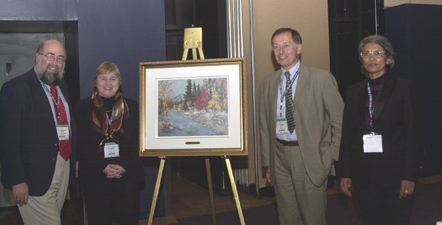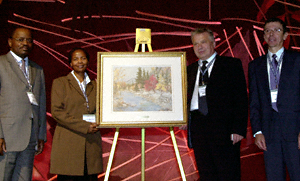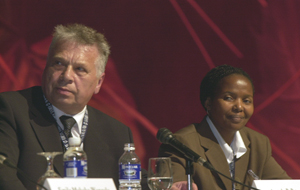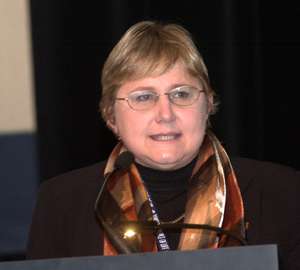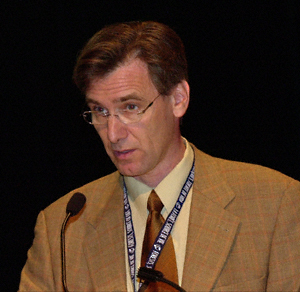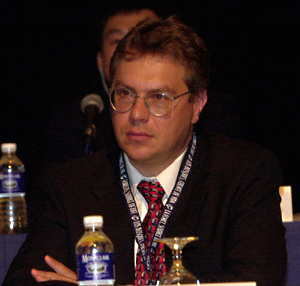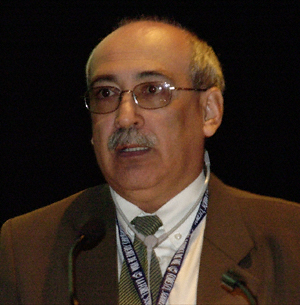 |
 |
 |
| Daily Web Coverage |
Congress
Highlights for Saturday, 27
September 2003
|
||||||
|
Challenges and perspectives: |
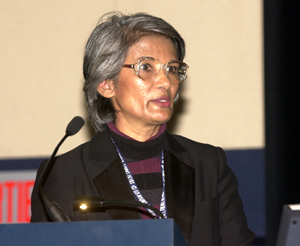 Angela Cropper, The Cropper Foundation, indicates that she was struck by the low threshold of certain UN targets, noting that the global community should eradicate, rather than halve world poverty by 2015. She notes the indivisibility of needs between forests and people. |
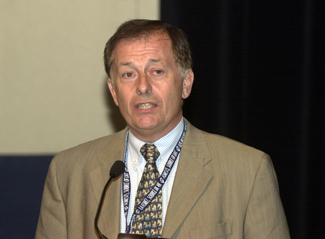 Jeffrey Sayer, WWF International, explains that even in countries where there are scarce goods, as in the case of low forest cover countries, forests can still be managed successfully. |
|
|
| Theme Sessions: |
|
|
Devolution
and decentralization:
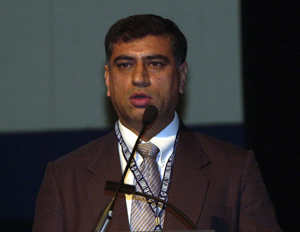
Sushil Kumar, University of Toronto, explains why institutionalized bureaucracies need reform measures that relax their hierarchical rigidity and promote a participatory decision making environment. |
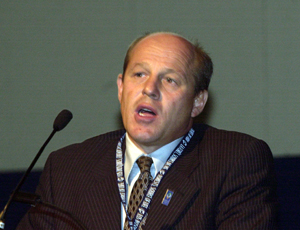 Bernard Cassagne, Forest Resources Management, France, explains how forest administrators in the Congo Basin have established a regulatory framework for SFM and monitor, control and adapt to changing conditions in the area, which requires a great deal of financial resources. |
Enterprise partnerships: Stephen Wyatt, Laval University, says that partnerships are possible when partners are flexible and when industry recognize that forest are not only a valuable resource but a source of life. |
|
|
|
Incentives and Financing: |
|
|
|
|
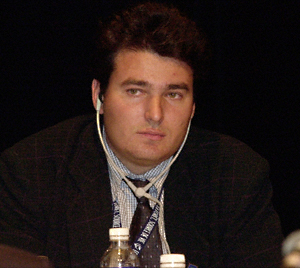 Sándor Tóth explains how forest management plans could increase jobs and reduce Japan's reliance on wood imports. |
Science,
technology and institutional development: 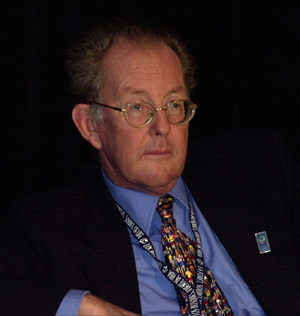 Jim Ball, Independent Forestry Consultant, argued that foresters and forest scientists have a responsibility to clearly translate their research findings to both the specialist and non-specialist forestry communities. |
|
Outlook: |
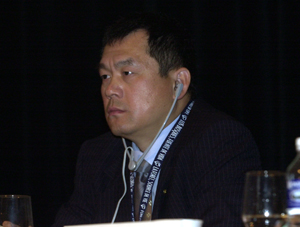 Sen Wang, Canadian Forest Service, highlighted forests as an indicator in environmental assessment and utilized Kuznets Curve to define the relationship between environmental quality and economic well being. |
| Open Fora on emerging issues: |
|
Forest conservation and livelihood:
|
| "Who decides the future of forests?" |
 Roger Foteu, Conference of Dense and Humid Forest Ecosystems in Central Africa, explains that ownership rights without control result in open access to forests and stresses the role of state ownership. |
| Evening Show: |
|
| Sustainable Developments home page | Linkages home | IISDnet | E-mail | © 2003, IISD. All rights reserved.
|

